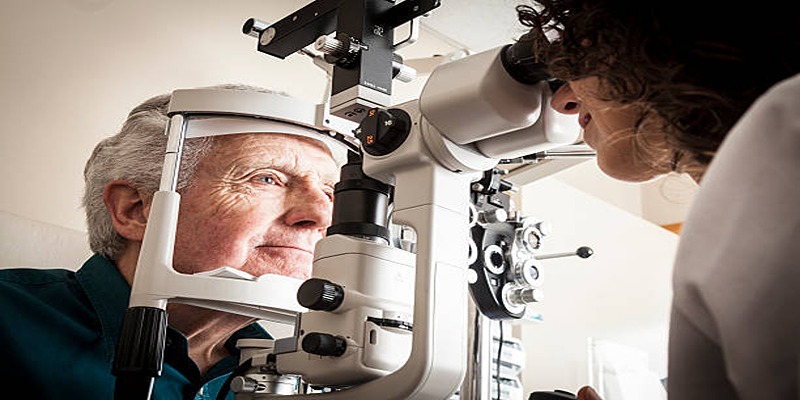Macular degeneration is the most prevalent age-related eye disease that can cause vision loss in people over fifty years. When the central visual area over the retina, known as the macula, degenerates, the ability to discern finer details dims. Individuals are always in the lookout for ways to treat this condition to relieve the symptoms. According to another conventional Chinese treatment technique of planting a slim needle into the skin in a particular stimulating method, acupuncture is another treatment that is drawing interest in regard to macula degeneration therapy.
Although there are opinions that it is effective in enhancing vision due to the enhancement of blood circulation and decrease of stress it has not been proven scientifically that it can effectively treat this eye condition.
What is Macular Degeneration?

Age related macular degeneration or AMD is a degenerative disease of the macula, a small area in the retina helping to see detail in central vision. There are two types of AMD: dry and wet. Dry AMD affects around seven in 10 people and is created when the light-sensitive cells in the macula, wear out while wet AMD involves the development of new blood vessels under the macula which leaks into the eye. This leads to scarring and consequently the total destruction of the macula.
Common symptoms and progression
In the initial stages, macular degeneration often goes unnoticed. However, as the condition advances, individuals may experience symptoms such as blurred or distorted vision, difficulty seeing in low light, and a dark or empty spot in the center of their sight. In the later stages, those affected by age-related macular degeneration (AMD) may struggle to recognize faces and find it challenging to carry out daily tasks like reading and driving.
Traditional treatment options
As of now, there is no cure for macular degeneration. Treatment options mainly focus on managing symptoms and slowing down the progression of the disease. This can include medications, laser therapy, and vision aids such as glasses or magnifying devices.
What is Acupuncture?
Acupuncture is a fundamental component of traditional Chinese medicine, practiced for thousands of years to address various health concerns. This technique involves inserting fine needles into specific points on the body to stimulate and balance the flow of energy, known as qi (pronounced "chee"). The needles are typically left in place for 10 to 20 minutes and may be gently manipulated by hand or stimulated with electrical currents. Acupuncturists believe that this process fosters healing by restoring the natural flow of energy within the body.
Can Acupuncture Treat Macular Degeneration?
While there is no scientific evidence to support acupuncture as a treatment for macular degeneration, some studies have shown promising results. One study published in the journal Medical Acupuncture found that acupuncture improved visual function and reduced central scotomas (areas of decreased or lost vision) in patients with dry AMD. However, this was a small study and more research is needed to confirm these findings.
Mechanism of Action
Acupuncture is believed to enhance circulation, which could improve blood flow to the eyes and help deliver essential nutrients and oxygen to the retina. This improved circulation might support retinal health and slow the disease's progression. Additionally, acupuncture is thought to reduce stress and inflammation in the body, which are contributing factors to various diseases, including macular degeneration.
Moreover, the stimulation of specific acupuncture points may influence the endocrine and nervous systems, potentially enhancing immune response and promoting cellular repair processes. Continued research and clinical trials are essential to provide more definitive answers and validate acupuncture's efficacy as part of a holistic approach to managing this condition.
Benefits of Acupuncture for Macular Degeneration
While more research is needed, there are potential benefits to using acupuncture as a complementary treatment for macular degeneration. These include:
- Non-invasive: Unlike other treatments such as injections or surgery, acupuncture is a non-invasive procedure.
- Minimal side effects: The most common side effect of acupuncture is mild pain or bruising at the needle site.
- Stress reduction: Acupuncture has been shown to reduce stress and anxiety, which can have positive effects on overall health and may benefit those with macular degeneration.
- May improve circulation: Increased blood flow to the eye may help slow down the progression of AMD.
Risks and limitations
As with any medical treatment, there are potential risks and limitations to using acupuncture for macular degeneration. These may include:
- Lack of scientific evidence: While some studies have shown promising results, more research is needed to confirm the effectiveness of acupuncture in treating macular degeneration.
- Time and cost: Acupuncture sessions can be time-consuming and expensive, as multiple sessions are typically required for optimal results.
- Not a replacement for traditional treatments: Acupuncture should not be used as a replacement for conventional treatments such as medication or laser therapy.
Considerations for Patients

If you are considering acupuncture as a treatment for macular degeneration, it is important to discuss this with your doctor first. They can help determine if it is a safe and appropriate option for you and may be able to refer you to a reputable acupuncturist.
Keep in mind that while acupuncture may offer potential benefits, it should not replace traditional treatments or medication prescribed by your doctor. It is best used as part of a comprehensive approach to managing macular degeneration. As with any medical treatment, it is essential to weigh the potential risks and benefits before making a decision.
Conclusion
Acupuncture is a popular alternative treatment that has shown potential in managing various health conditions. While there is limited scientific evidence to support its effectiveness in treating macular degeneration, some studies have shown promising results. Acupuncture should be used as part of a holistic approach to managing AMD and not as a replacement for traditional treatments. With ongoing research and clinical trials, we may gain a better understanding of acupuncture's potential role in managing this condition in the future.







